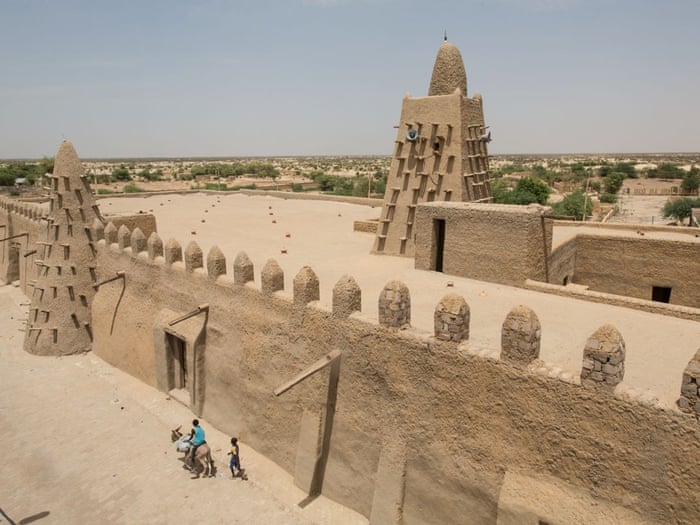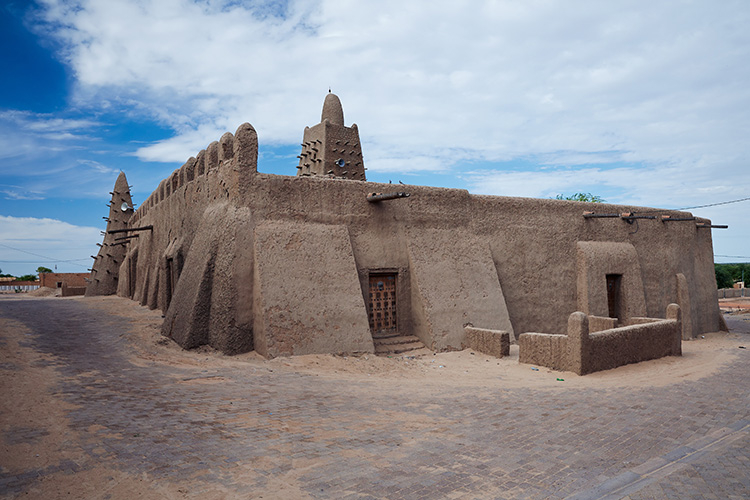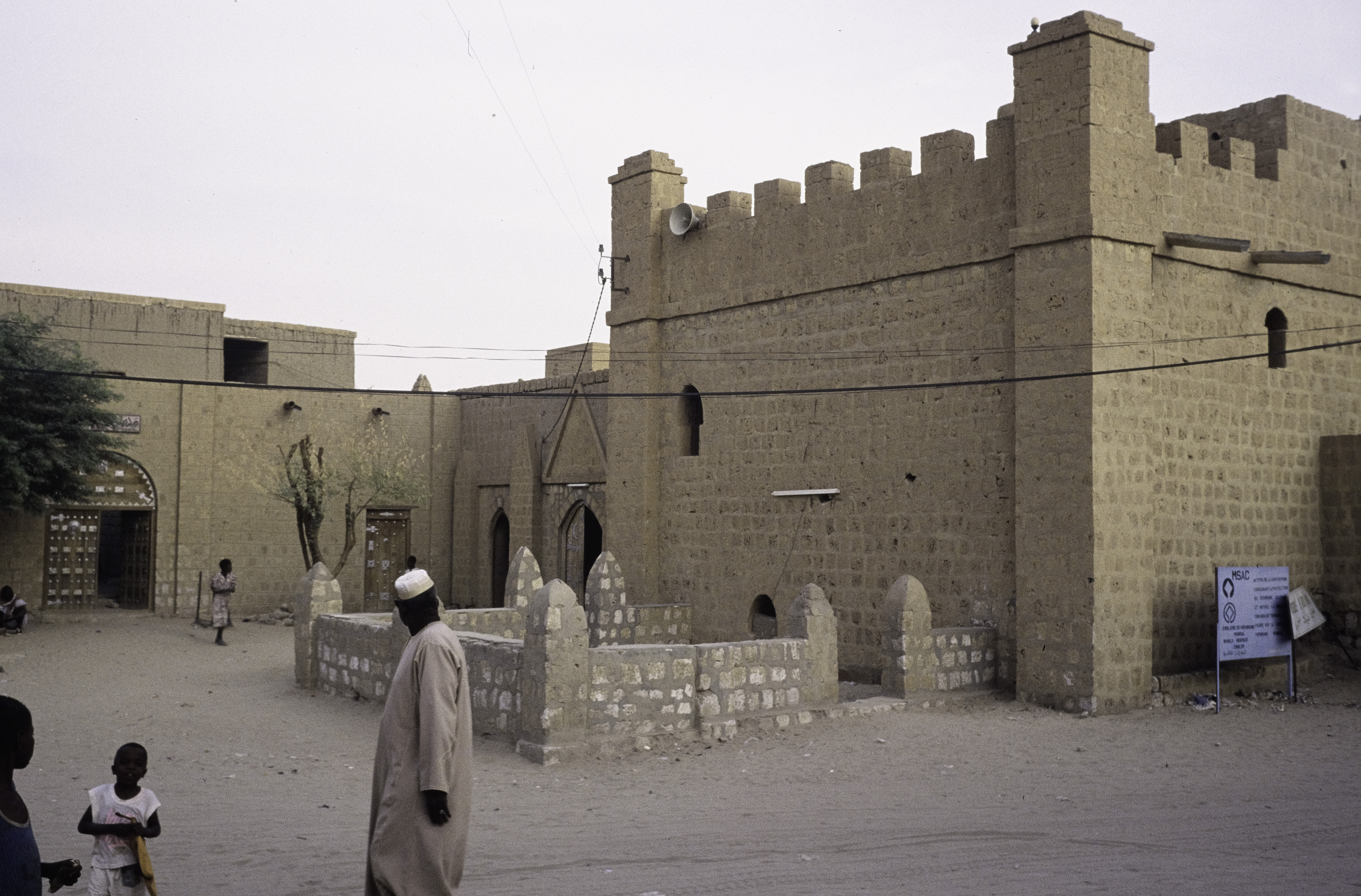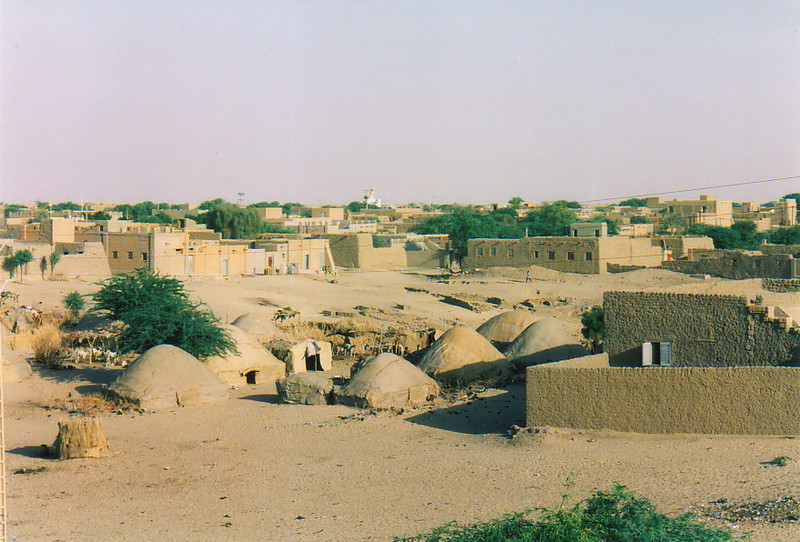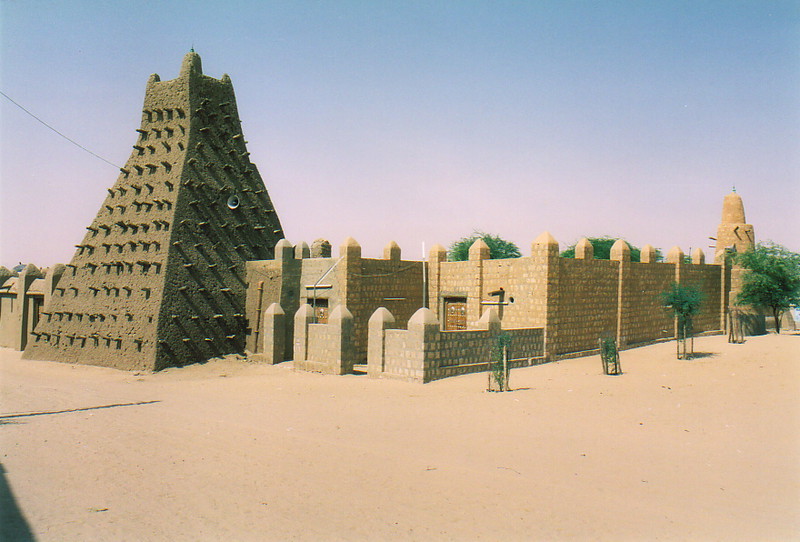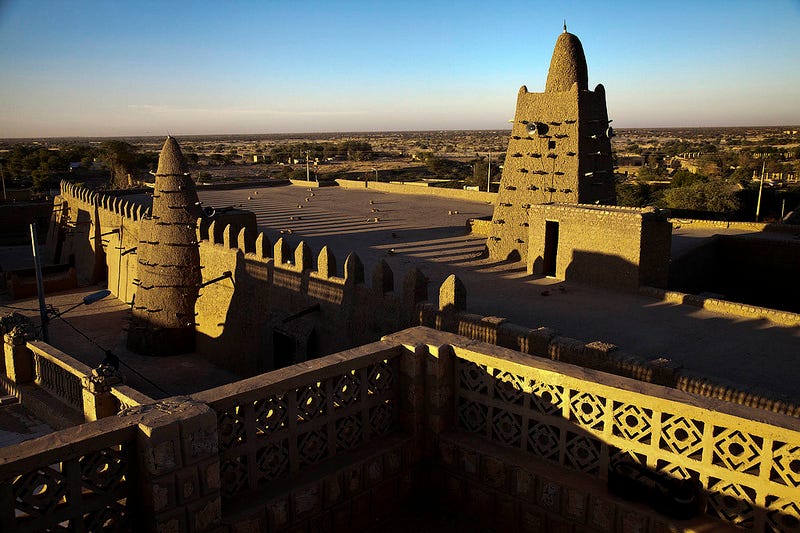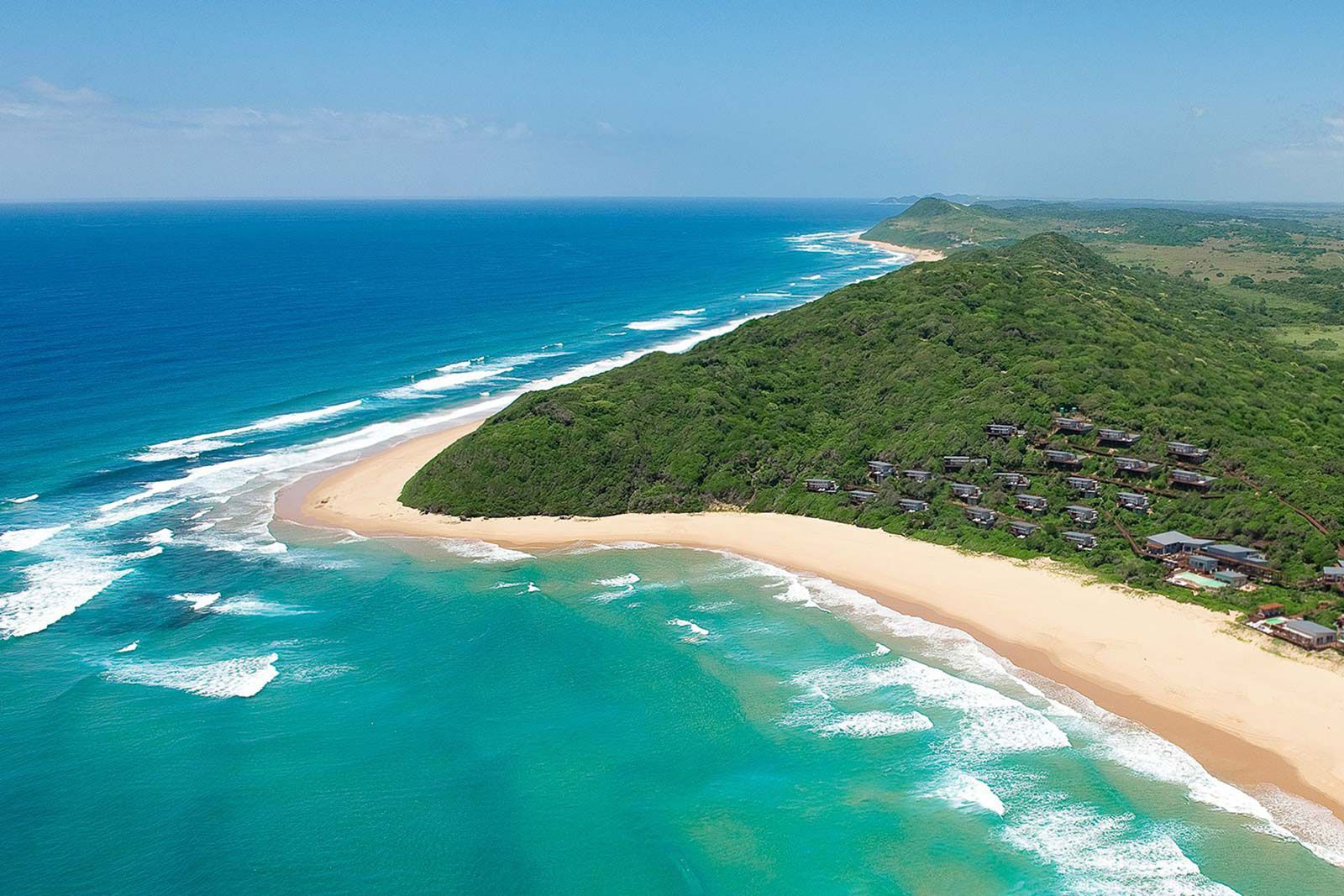Views of Timbuktu
About
location:
North-Central, Mali
Timbuktu was founded around the year 1100, and it quickly became an important center of Islamic learning. The city was a hub for scholars from all over Africa and the Middle East, and its manuscripts covered a wide range of topics, from law and science to literature and poetry.
By the 15th century, Timbuktu was one of the wealthiest cities in Africa, and it was a major trading center for gold, salt, and other goods. It was also home to a number of skilled artisans who produced beautiful textiles, jewelry, and other items.
The largest of these manuscript libraries is the Ahmed Baba Institute, which houses over 40,000 manuscripts that were collected from private homes and mosques all over the region. These manuscripts are written in a variety of languages, including Arabic, Berber, and local African languages.
They cover a wide range of topics, including astronomy, mathematics, medicine, and history. In addition to the Ahmed Baba Institute, there are a number of smaller libraries in Timbuktu that also contain valuable manuscripts.
Another interesting aspect of Timbuktu's history is its role in the trans-Saharan trade network. For centuries, caravans of camels would travel from Timbuktu to North Africa and beyond, carrying goods such as gold, salt, and ivory.
This trade brought wealth and prosperity to the city, and it also helped to spread Islamic culture and ideas throughout the region. Many of the mosques and shrines within Timbuktu were built using the wealth that came from this trade.
Things to know before travelling to Timbuktu
This article is a tip of the iceberg but will equip you with the "Absolute Need to Knows" for Timbuktu.
How to get there?
Getting to Timbuktu is not easy, but it's certainly possible! The most common way to get there is to fly into Bamako, Mali, which is the country's capital. From there, you can take a bus or hire a car to take you the rest of the way to Timbuktu.
The journey from Bamako to Timbuktu is about 500 miles, and it can take anywhere from 12 to 24 hours. Once you arrive in Timbuktu, you'll find that the city is small and easy to explore on foot.
About the weather
Timbuktu has a desert climate, with very hot and dry weather throughout most of the year. The hottest months are April and May, when temperatures can reach up to 110 degrees Fahrenheit. During the rainy season, from July to September, the temperatures are a bit cooler, but the humidity is high.
Even during the cooler months, from November to February, the temperatures are still quite warm, ranging from 75 to 90 degrees Fahrenheit. Overall, Timbuktu is a hot and dry place, so be prepared for the heat if you're planning a visit!
Medical matters that affect your visit.
When visiting Timbuktu, Mali, there are certain medical matters that may affect your trip. It is essential to be aware of these factors to ensure a safe and enjoyable visit. Here are some medical matters to consider:
vaccinations
Prior to traveling to Timbuktu, it is crucial to check if your routine vaccinations are up to date. Additionally, specific vaccines are recommended for Mali, including those for hepatitis A, typhoid, yellow fever, and meningitis. Consult with a healthcare provider or visit a travel clinic well in advance to receive the necessary vaccinations.
Malaria
Timbuktu, like many regions in Mali, is at risk of malaria. It is essential to take preventive measures such as taking antimalarial medication, wearing protective clothing, and using insect repellents. Additionally, consider sleeping under mosquito nets and staying in accommodations with proper screens or air-conditioning.
Food and Water Safety
In Timbuktu, as in other developing areas, it is important to pay attention to food and water hygiene. Drink only bottled water or water that has been boiled and avoid consuming raw or undercooked food. Wash your hands frequently and carry hand sanitizer for situations where clean water is unavailable.
Heat and Sun exposure
Timbuktu experiences extremely high temperatures, especially during the summer months. Protect yourself from heatstroke and sunburn by wearing lightweight, loose-fitting clothing, using sunscreen with a high SPF, and drinking plenty of fluids. Seek shade during the hottest times of the day
Traveler's Diarrhea
Like in many travel destinations, the risk of traveler's diarrhea exists in Timbuktu. Maintain good hygiene practices, such as washing your hands regularly, and avoid consuming street food or drinks from questionable sources. Consider bringing antidiarrheal medications and oral rehydration salts to manage symptoms if needed.
Cultural etiquettes at Timbuktu
One of the most important cultural etiquettes in Timbuktu is to dress modestly and show respect for the local culture. Both men and women should avoid wearing revealing clothing, and women should cover their shoulders and knees. It's also considered rude to point at someone or to talk loudly in public.
When you greet someone, it's customary to shake hands with your right hand and to say "As-salaam-alaikum," which means "peace be upon you." These are just a few of the cultural customs to keep in mind when visiting Timbuktu.
Language and communication at Timbuktu
In Timbuktu, the official language is French, but many people also speak Bambara, Arabic, Tamasheq, and Songhai. However, English is not widely spoken, so it's a good idea to learn some basic French phrases before you go.
You can also use gestures and body language to communicate, and most people in Timbuktu are very friendly and will try to help you communicate, even if you don't speak the same language. And don't worry, a smile and a friendly demeanor can go a long way!
Safety precautions at Timbuktu
Timbuktu is generally a safe place to visit, but it's important to be aware of your surroundings and to take some basic precautions. The biggest safety concern is petty crime, so it's important to keep your belongings close to you and avoid carrying large amounts of cash.
It's also a good idea to avoid walking alone at night and to stick to well-lit areas. While the threat of terrorism is always a concern in Mali, the risk in Timbuktu is low. The best way to stay safe is to be aware of your surroundings and to follow the advice of local authorities.
Vital Information On Money Matters
Timbuktu is a cash-based society, so it's important to bring enough cash to cover your expenses while you're there. The local currency is the West African franc CFA , and you can exchange money at banks or exchange bureaus.
ATMs are not widely available, so it's best to bring cash with you from your home country. Credit cards are not widely accepted, but some hotels and restaurants may accept them. Keep in mind that bargaining is common in Timbuktu, so don't be afraid to haggle when you're shopping!
Fun Things To Do At Timbuktu
Here are some of the top things to do in Timbuktu:
- Visit the famous Djinguereber Mosque, one of the most famous landmarks in the city.
- Explore the bustling markets, where you can find everything from spices to jewelry.
- Hike to the top of the nearby mountains for stunning views of the city and the surrounding desert.
- Take a camel ride into the Sahara Desert and camp under the stars.
- Take a boat ride on the Niger River, which flows through the city.
- Go on a tour of the city's historic sites, including the ruins of the ancient Sankore University and the Kankore Mosque.
As you can see, Timbuktu has a lot to offer visitors, and there are plenty of fun things to do! Whether you're interested in history, culture, or outdoor activities, you'll find something to enjoy in Timbuktu.
Who can travel to Timbuktu?
Anyone can travel to Timbuktu, but some nationalities may require a visa. Citizens of the United States, Canada, the United Kingdom, and the European Union do not need a visa to visit Timbuktu for stays of up to 90 days.
Other nationalities should check with their local embassy or consulate for visa requirements. It's also important to note that Timbuktu is in a region that has been affected by conflict, so it's important to check the latest travel advisories and be aware of the security situation before you go.
Travel Documents
You will need a valid passport and visa to enter Mali. Make sure your passport is valid for at least six months after your travel date and check if you need to obtain a visa before traveling.
What time of the year is best to visit?
The best time to visit Timbuktu is during the dry season, from October to March. During this time, the weather is warm and sunny, and there is little rain. The city is also less crowded during this time, making it a more enjoyable time to visit.
The peak season in Timbuktu is from June to August, when temperatures can be very hot. The rainy season, from July to September, is also a time to avoid, as the city can become flooded and muddy.
Packing Essentials For Your Trip
When packing for a trip to Timbuktu, it's important to pack light and be prepared for the weather and the terrain. Some essential items to pack include:
- Light, breathable clothing that can protect you from the sun.
- A hat and sunglasses to protect your face and eyes from the sun.
- Comfortable shoes that can handle the sandy and rocky terrain.
- A first-aid kit with basic supplies like bandages, antiseptic cream, and anti-diarrheal medication.
- A water bottle or water purification tablets to stay hydrated.
- A flashlight or head lamp to help you navigate at night.
- A small daypack to carry your essentials while exploring the city.
- A travel adapter for charging your electronics.
- A power bank or extra batteries for your electronic devices.
- A good travel guidebook to help you navigate the city and learn about its history and culture.
- And last but not least, an adventurous spirit and a sense of wonder!
view map
Book Flight ticket
If this widget is not showing try reloading the page
The flight search result will be provided in a new tab
Bamako Senou international airport will be a good destination if you are coming from outside Mali
Book Hotel
If this widget is not showing try reloading the page
The hotel search result will be provided in a new tab
Input Bamako, Mali or Mopti, Mali as the city name to search and compare hotel prices
You can book tours at hotels upon arrival.
